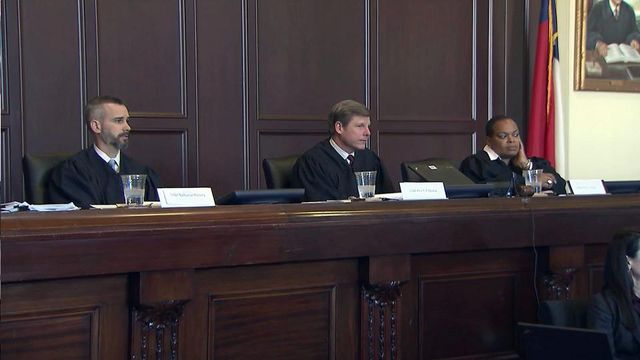Boone zoning dispute first case heard by three-judge panel
State lawmakers' decision last summer to strip the town of Boone of its ability to control development outside its borders on Monday became the first challenge to legislative action to be heard by a three-judge panel.
Posted — UpdatedAfter a spate of rulings against the state in recent years, lawmakers inserted a provision in the 2014-15 state budget that calls for legal actions questioning the constitutionality of state laws to be heard by panels of three Superior Court judges rather than a single judge.
Judges Paul Ridgeway of Wake County, Alma Hinton of Halifax County and Nathaniel Poovey of Catawba County were appointed to hear Boone's case. No decision was announced Monday.
Lawmakers in June eliminated Boone's extraterritorial jurisdiction, or ETJ, preventing the town from exercising any planning or zoning authority over land adjoining the city limits, as of Jan. 1, 2015.
Supporters of the move argued that the town had abused its power, which lawmakers granted to cities in 1959. Bill author Sen. Dan Soucek, R-Watauga, said Boone had declared some land on mountain slopes outside the town off-limits for development, hurting people's property values.
Critics said the legislation was pushed through the General Assembly without any input from Boone or people who live in the ETJ, and they warned that it would lead to increased urban sprawl and problems with stormwater runoff.
Boone officials said the law is the first time North Carolina has ever taken zoning authority from a municipality, and attorney Jim Phillips told the judicial panel Monday that regulations within the ETJ is a right and that the town will face "irreparable harm" if that is taken away.
"This case is about power, not about political boundaries," Phillips said, calling the legislation "striking in its breadth."
Watauga County doesn't have zoning in the area, a minimum housing code or limits on high-impact uses, he said, so unregulated development could occur that would hurt the town and even residents in the ETJ.
Assistant Attorney General Lauren Clemmons and Watauga County Attorney Stacy Eggers IV argued, however, that the county could enforce applicable laws to protect the health and welfare of people in the ETJ.
"We don't think there's anything to show the state can't do what it's done," Clemmons told the judges.
Related Topics
• Credits
Copyright 2024 by Capitol Broadcasting Company. All rights reserved. This material may not be published, broadcast, rewritten or redistributed.






